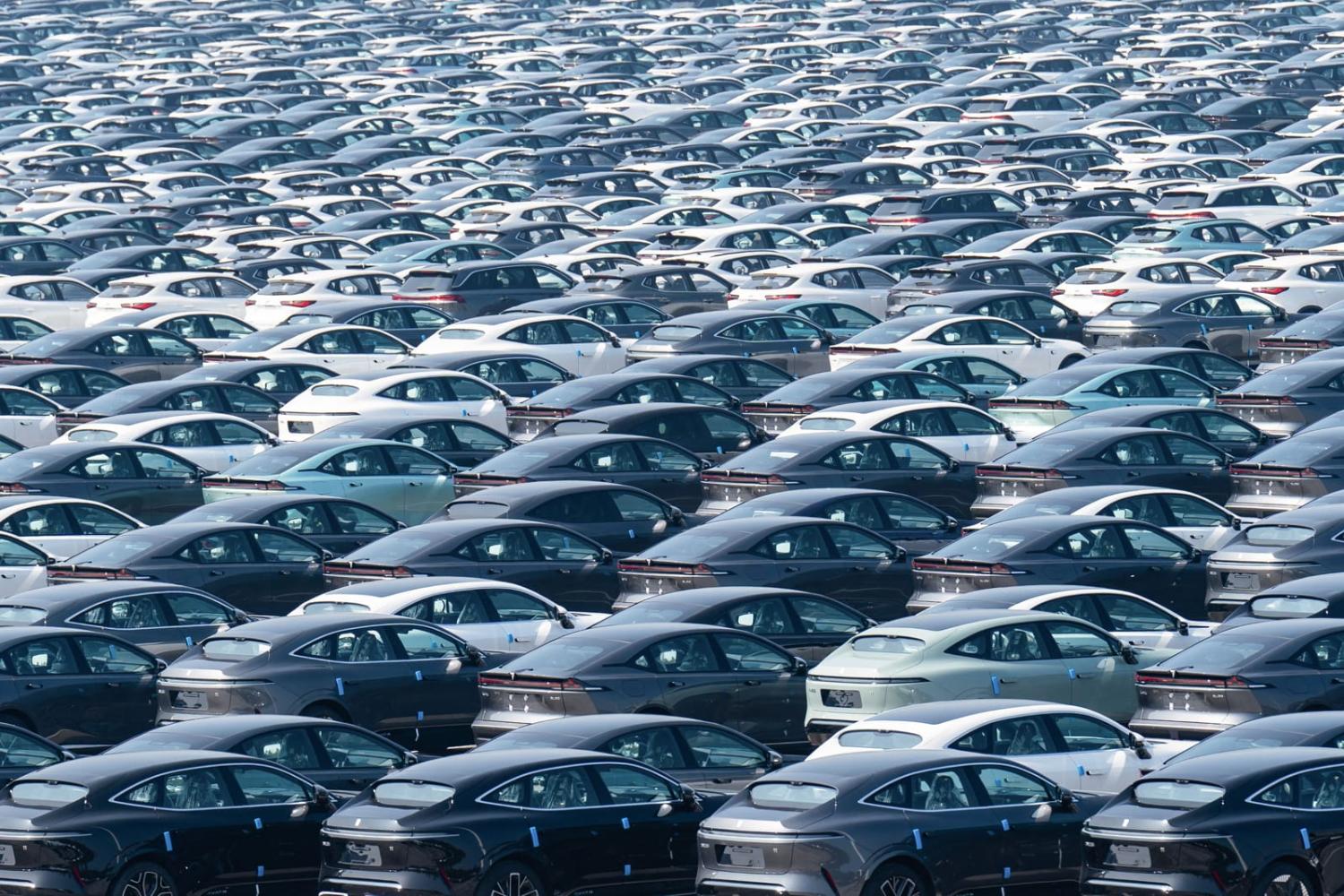China is on track to export nearly 5 million motor vehicles by the end of the year, making China the largest car exporter in the world. This has caught many by surprise. But the rapid expansion of China’s vehicle exports is nothing to sniff at. Becoming a global car exporter with recognisable brand names has been traditionally seen as the pinnacle of manufacturing prowess – just ask Japan and South Korea.
In response, European Commission President Ursula Von der Leyen last month announced an anti-subsidy probe into China’s automotive industrial policies. The European Union should not respond by turning inward and raising trade barriers. Rather, it should accept competition from China and seek to foster domestic innovation and remain relevant at the global frontier of automotive manufacturing.
In January 2021, China averaged about 100,000 motor vehicle exports each month. In just over two-and-a-half years, it has surpassed the top three exporters – Japan, Germany and South Korea – by quadrupling exports to more than 400,000 units a month.
As early as 2009, the Chinese government sought to develop an electric vehicles (EVs) sector by introducing a network of subsidies, tax credits and other policy incentives. This mix of industrial policies allowed car manufacturers and their suppliers to pursue EV design and production at relatively low costs. Dozens of domestic companies, including BYD, SAIC Motor and Geely, took advantage of this government support to become major players in the Chinese automotive industry. Embodying this success and critical to its realisation was the development of the most competitive EV battery sector in the world. China now accounts for more than 75 per cent of global EV battery production.
China not only allowed domestic firms, but notably also foreign firms, to access EV policy support. Major foreign brands such as BMW, Volkswagen, Mercedes and Tesla were attracted by China’s massive domestic market. But China also drew them in with its cheaper labour, advancing industrial base and the same favourable EV subsidies. The well publicised courting of Tesla to build its gigafactory in Shanghai is illustrative of why major foreign brands have been attracted to China. These companies now operate auto manufacturing plants in China to service both foreign and domestic markets.
Reduced uncertainty through policy signalling and heavily subsidised investment costs all but guaranteed development of a significant domestic supply capability. Tax credits for customers buying EVs also ensured a consumer market to sell into.
In fact, China now accounts for more than 50 per cent of global demand for EVs – with domestic sales growing amid a bleaker economic outlook. EV and plug-in hybrid sales in China look likely to reach nearly 10 million units in 2023. This has meant internal combustion engine vehicle sales are falling faster than expected. This growing excess supply is being sold into foreign markets.
While the rest of the world seems to have accepted EVs as the future of personal transport, albeit more slowly than China, demand for internal combustion engine vehicles remains (US manufacturer General Motors this week delayed EV pickup truck production citing slowing EV sales). China is therefore supplying both a large share of the world’s demand for EVs and internal combustion engine vehicles from well-known incumbent brands.
The delay in EV transition efforts in Western countries has left the door open for China.
In response, the European Union seems poised to implement punitive tariffs to limit exposure to China’s competitive automotive manufacturing. Losing global dominance in an industry considered a strategic priority would be a blow to its reputation as a global innovator and competitor. But protectionism will not help the European Union compete globally.
Sheltering Europe’s industry behind tariffs will inevitably slow car manufacturers’ investment incentives in EV design and production. Tariffs will increase the price of imported Chinese EVs, softening the competitive pressures faced by the industry. This will keep EV prices higher with less innovation in quality or cost reduction from domestic firms. Forcing consumers to face higher prices for either EVs made by the world’s leading supplier or protected domestic industry amid record-breaking global temperatures will slow efforts to decarbonise. For instance, recent International Monetary Fund research suggests a significant increase in trade fragmentation from protectionist policies could see global renewable energy and EV investments up to 30 per cent lower by 2030 compared to a scenario with no fragmentation. Import tariffs against China’s EVs are exactly what the IMF is warning against.
Instead of chasing protectionist impulses, European policymakers should compete with China. Similar arguments have been made about US economic policies, which include large import tariffs on Chinese EVs.
Reconsidering industrial policy and guiding investment in the sector through targeted and well-designed policies to encourage innovation makes sense. It would accelerate the transition to EVs. It would also increase the near-term demand for the accompanying supply chains and infrastructure, helping spur on net-zero investment decisions outside the sector. And opportunities exist for European industry to remain competitive. Gaps in EV technologies are apparent – long-distance batteries face global under-investment and suit Western consumer preferences better. European carmakers should target these gaps but require favourable policy environments to take bigger risks.
If the European Union does impose tariffs, diversion to other markets is inevitable. Chinese EVs are already finding favour in Australia. Without a car industry to subsidise, import tariffs and other trade barriers would be even more harmful in Australia without a viable alternative to replace them. The Australian government would be wise to embrace a growing supply of cheap EVs and accelerate the country’s transition to net-zero.


